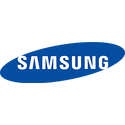
Samsung to Install High-NA EUV Machines Ahead of TSMC in Q4 2024 or Q1 2025
Samsung Electronics is set to make a significant leap in semiconductor manufacturing technology with the introduction of its first High-NA 0.55 EUV lithography tool. The company plans to install the ASML Twinscan EXE:5000 system at its Hwaseong campus between Q4 2024 and Q1 2025, marking a crucial step in developing next-generation process technologies for logic and DRAM production. This move positions Samsung about a year behind Intel but ahead of rivals TSMC and SK Hynix in adopting High-NA EUV technology. The system is expected to be operational by mid-2025, primarily for research and development purposes. Samsung is not just focusing on the lithography equipment itself but is building a comprehensive ecosystem around High-NA EUV technology.
The company is collaborating with several key partners like Lasertec (developing inspection equipment for High-NA photomasks), JSR (working on advanced photoresists), Tokyo Electron (enhancing etching machines), and Synopsys (shifting to curvilinear patterns on photomasks for improved circuit precision). The High-NA EUV technology promises significant advancements in chip manufacturing. With an 8 nm resolution capability, it could make transistors about 1.7 times smaller and increase transistor density by nearly three times compared to current Low-NA EUV systems. However, the transition to High-NA EUV comes with challenges. The tools are more expensive, costing up to $380 million each, and have a smaller imaging field. Their larger size also requires chipmakers to reconsider fab layouts. Despite these hurdles, Samsung aims for commercial implementation of High-NA EUV by 2027.
The company is collaborating with several key partners like Lasertec (developing inspection equipment for High-NA photomasks), JSR (working on advanced photoresists), Tokyo Electron (enhancing etching machines), and Synopsys (shifting to curvilinear patterns on photomasks for improved circuit precision). The High-NA EUV technology promises significant advancements in chip manufacturing. With an 8 nm resolution capability, it could make transistors about 1.7 times smaller and increase transistor density by nearly three times compared to current Low-NA EUV systems. However, the transition to High-NA EUV comes with challenges. The tools are more expensive, costing up to $380 million each, and have a smaller imaging field. Their larger size also requires chipmakers to reconsider fab layouts. Despite these hurdles, Samsung aims for commercial implementation of High-NA EUV by 2027.




























































